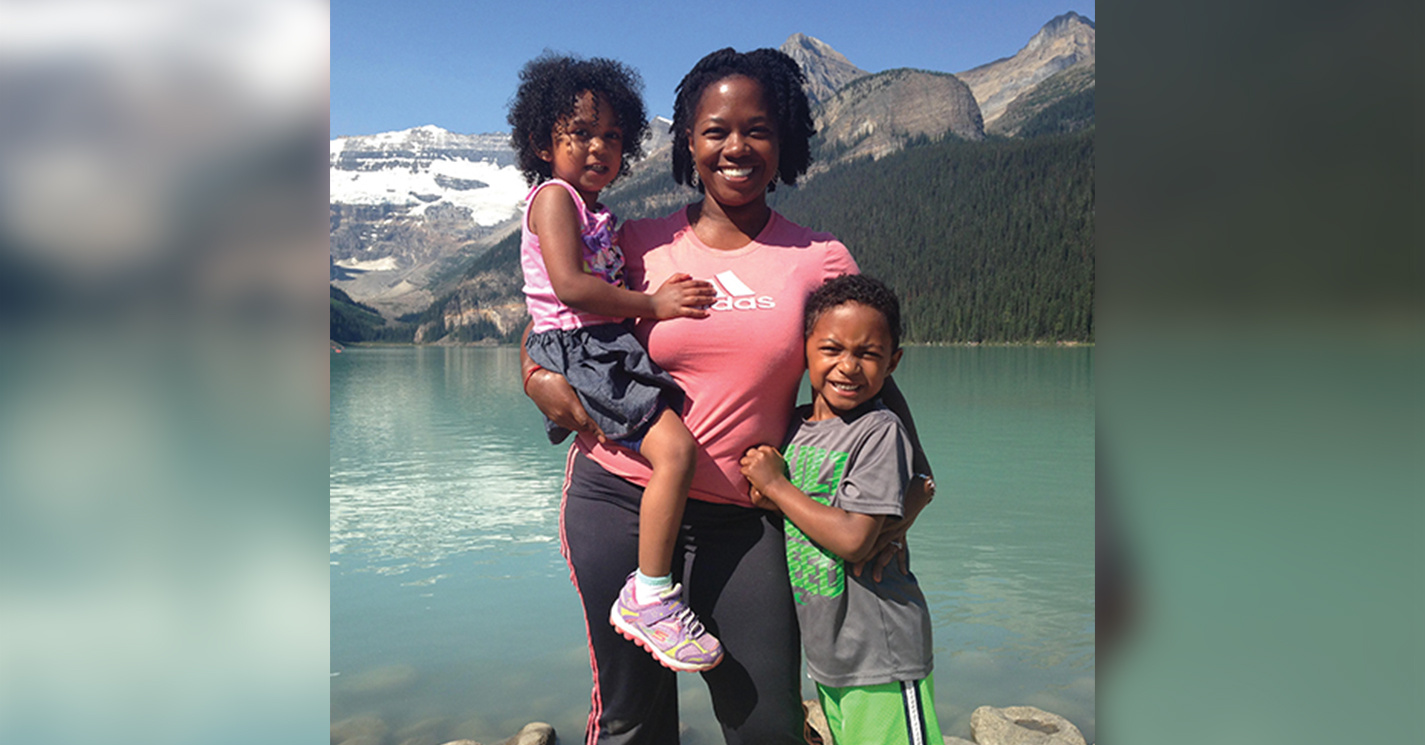
Righting Wrongs in Society
At SEAS, Jada Koushik (MS ’08) had the opportunity to work with Professors Bunyan Bryant and Rebecca Hardin, which had a significant impact on the trajectory of her career. Although much of it was spent working in public health, Koushik’s work has always centered on environmental justice.
Koushik earned a master’s degree in public health from Tulane University in 2002 and, in her career as an epidemiologist, was focused on communicable diseases and lead poisoning. In 2008, after graduating from SEAS, her family moved to Canada, where she has worked and studied since. For several years she continued to work in public health but eventually decided it was time to pursue a PhD, which she earned in June 2022 from the University of Saskatchewan’s School of Environment and Sustainability.
“I’ve always seen the connection between public health, sustainability and environmental justice. Every little step I’ve taken has been building on my experiences, and I see the culmination of that in my PhD,” says Koushik. “For my PhD research, I looked at sustainability education and place (the land you live on and how that matters), working closely with school districts in Canada to learn what they were doing to promote sustainability, green spaces and engagement with Indigenous communities.”
Koushik’s research revealed that schools were focused on the basics, such as recycling, but were doing next to nothing to engage local and Indigenous communities. Her research supported the need for a dedicated dialogue between educators, administrators and students about social and cultural dimensions of place, especially territorial acknowledgment, and possibly a more formal curriculum to reinforce these messages to support whole-school approaches to sustainability.
Koushik is now a postdoc at Wilfrid Laurier University. Her research focuses on anti-racism and oppression. She asks questions about experiences of racism on campus, how it has impacted individual health and how it spills over into personal lives. “What I find heartbreaking is that across all participant types—deans, faculty, students, staff—they say, ‘I’m so happy somebody is letting me speak and is listening to me.’ Since racism and discrimination are my focus, I hear stories about what they have to deal with and the lasting effects on their lives and work, including how their experiences can impact whether or not they continue with higher education. This isn’t exactly environmental justice, but I feel that it’s in line since I am still working to right wrongs in society,” says Koushik.
In addition to her research, Koushik is formulating modules for anti-racism work on campus and also teaching an environmental justice course at Waterloo University. “I love research and that type of interaction, but my highest passion is teaching,” says Koushik. “I often think about how, at SEAS, I worked with the most inspiring teachers who are some of the biggest names in environmental justice. Working with such highly regarded and respected people who are so grounded had such an impact on me and my career. My experiences at SEAS were priceless and invaluable and continue to inspire me to this day. I received a foundation that I’ve been able to build upon as I progress through my career.”

